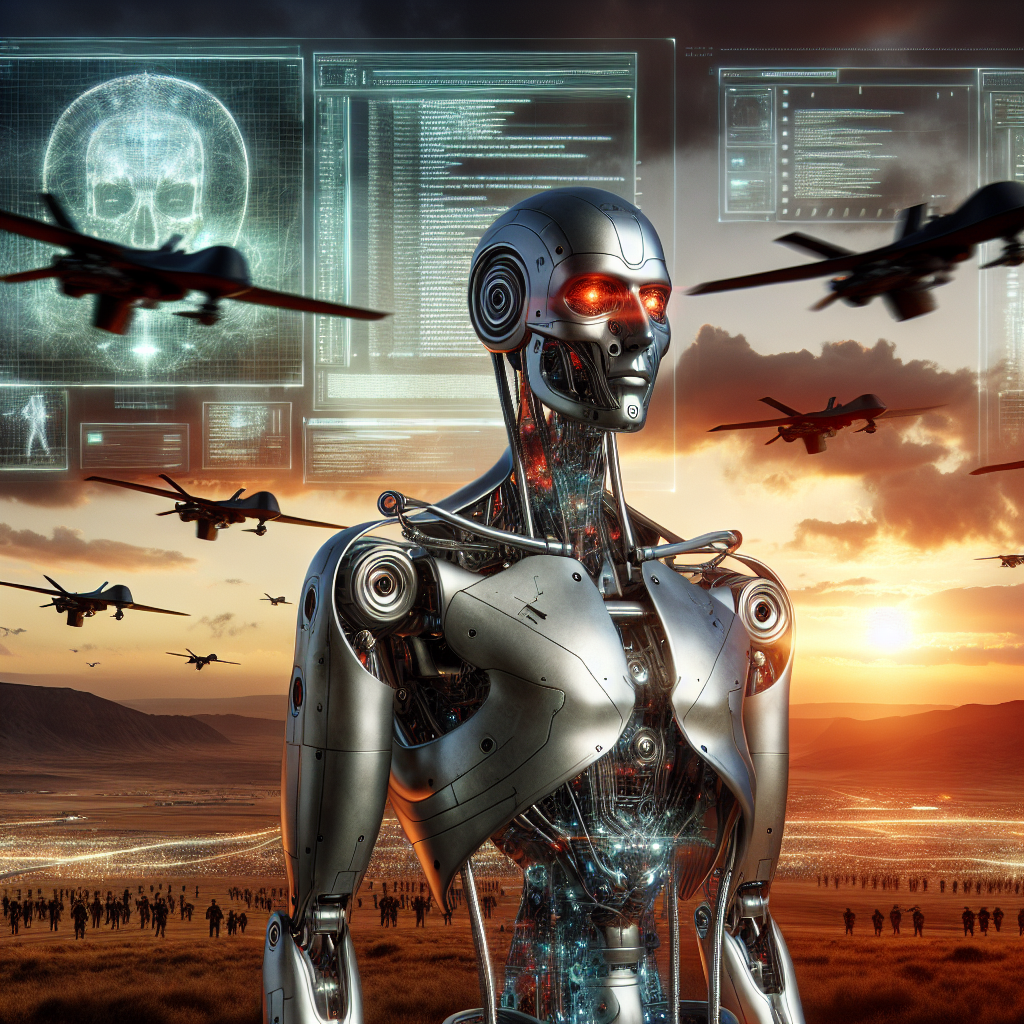As technology continues to advance at an exponential rate, the development of artificial intelligence (AI) has become a significant focus for many industries. While AI has the potential to revolutionize various aspects of our lives, there are also concerns about its weaponization and the creation of autonomous weapons. The risks associated with AI weaponization and the use of autonomous weapons are significant and have sparked debate among policymakers, ethicists, and the general public.
One of the main concerns surrounding AI weaponization is the potential for misuse and unintended consequences. AI systems are designed to learn from data and make decisions based on that information. However, there is always a risk that these systems could make errors or be manipulated to act in ways that are harmful or unethical. For example, an AI-powered weapon could be programmed to target civilians or make decisions that result in unnecessary harm or destruction.
Another risk of AI weaponization is the potential for escalation in conflicts. The use of autonomous weapons could lead to a faster and more deadly arms race, as countries seek to develop more advanced and powerful AI-powered weapons to gain a strategic advantage. This could increase the likelihood of conflict and make it more difficult to control or de-escalate situations.
There are also concerns about the lack of human oversight and accountability in the use of autonomous weapons. Unlike traditional weapons, which require a human operator to make decisions, autonomous weapons can operate independently and make decisions without human intervention. This raises questions about who is ultimately responsible for the actions of these weapons and how they can be held accountable for any harm caused.
Furthermore, there are ethical considerations surrounding the use of AI in weapons systems. The development of autonomous weapons raises questions about the morality of delegating life-and-death decisions to machines. There are concerns about the potential for AI systems to lack empathy or moral reasoning, leading to decisions that prioritize efficiency or strategic objectives over human life and well-being.
In addition to these risks, there are also concerns about the potential for AI systems to be hacked or manipulated by malicious actors. Cybersecurity vulnerabilities in AI systems could be exploited to gain control of autonomous weapons or disrupt their operations, leading to unintended consequences or misuse.
Overall, the risks of AI weaponization and the use of autonomous weapons are significant and require careful consideration by policymakers, researchers, and the public. It is essential to develop robust regulations and ethical guidelines to ensure that AI systems are used responsibly and in ways that prioritize human safety and well-being.
FAQs:
Q: What are autonomous weapons?
A: Autonomous weapons are AI-powered weapons systems that can operate independently and make decisions without human intervention. These weapons can include drones, robots, and other military devices that are equipped with AI technology to target and engage enemy forces.
Q: Are autonomous weapons legal?
A: The legality of autonomous weapons is a subject of debate among international legal experts. Some argue that the use of autonomous weapons violates international humanitarian law and the principles of proportionality and distinction in armed conflict. Others argue that autonomous weapons can be used in compliance with international law if they are developed and deployed responsibly.
Q: Can autonomous weapons be controlled?
A: There are ongoing efforts to develop regulations and guidelines for the use of autonomous weapons to ensure that they can be controlled and supervised by human operators. However, there are challenges in implementing effective control mechanisms for autonomous weapons, given their ability to operate independently and make decisions in real-time.
Q: What are the ethical concerns surrounding autonomous weapons?
A: The use of autonomous weapons raises ethical concerns about the delegation of life-and-death decisions to machines, the potential for lack of empathy or moral reasoning in AI systems, and the risk of unintended harm or misuse. There are also questions about accountability and responsibility for the actions of autonomous weapons and the potential for escalation in conflicts.
Q: How can we address the risks of AI weaponization and autonomous weapons?
A: To address the risks of AI weaponization and the use of autonomous weapons, it is essential to develop robust regulations and ethical guidelines for the development and deployment of AI systems in weapons technology. This includes ensuring human oversight and accountability, prioritizing human safety and well-being, and promoting transparency and responsible use of AI in military contexts.

